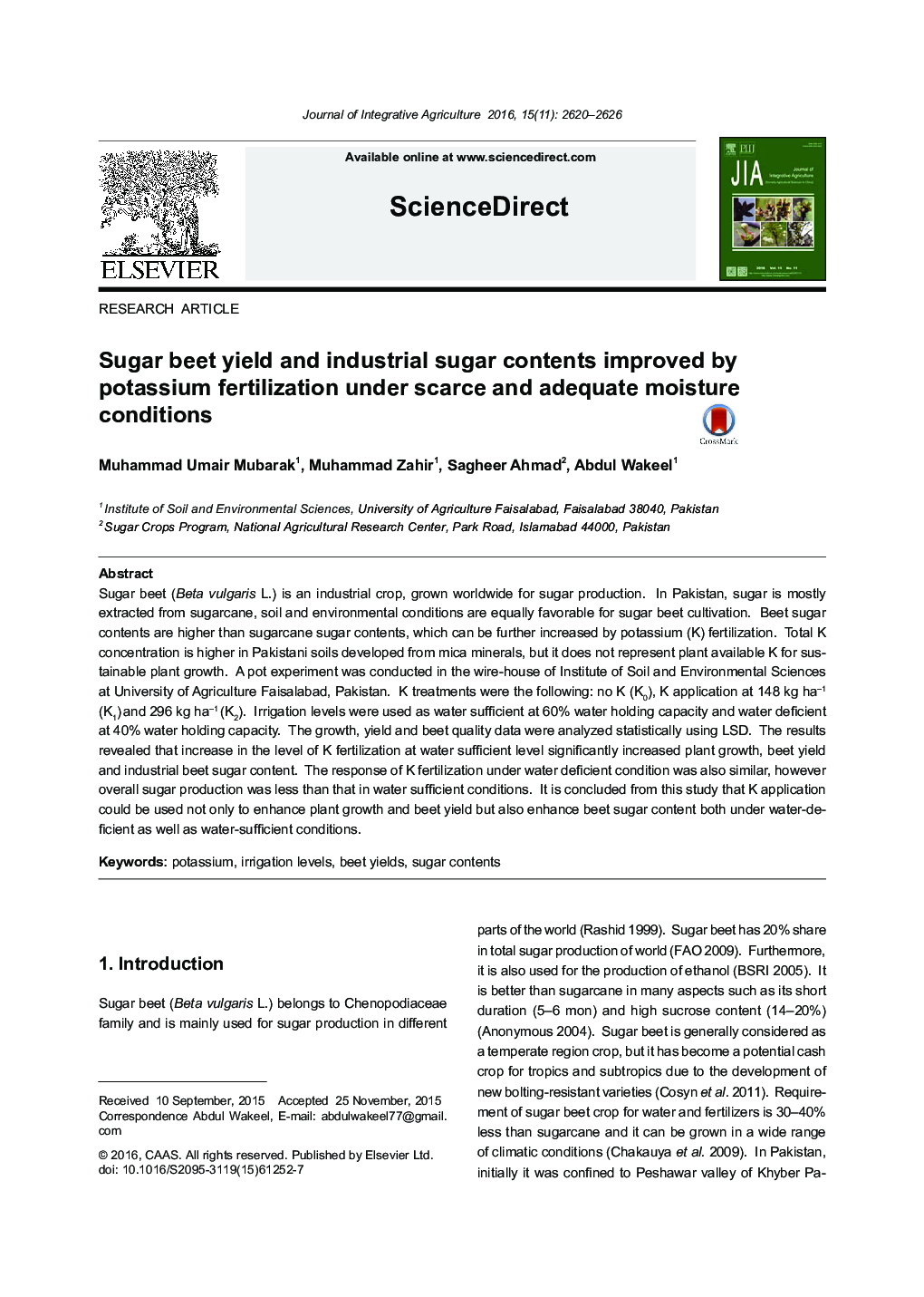| Article ID | Journal | Published Year | Pages | File Type |
|---|---|---|---|---|
| 8876224 | Journal of Integrative Agriculture | 2016 | 7 Pages |
Abstract
Sugar beet (Beta vulgaris L.) is an industrial crop, grown worldwide for sugar production. In Pakistan, sugar is mostly extracted from sugarcane, soil and environmental conditions are equally favorable for sugar beet cultivation. Beet sugar contents are higher than sugarcane sugar contents, which can be further increased by potassium (K) fertilization. Total K concentration is higher in Pakistani soils developed from mica minerals, but it does not represent plant available K for sustainable plant growth. A pot experiment was conducted in the wire-house of Institute of Soil and Environmental Sciences at University of Agriculture Faisalabad, Pakistan. K treatments were the following: no K (K0), K application at 148 kg haâ1 (K1) and 296 kg haâ1 (K2). Irrigation levels were used as water sufficient at 60% water holding capacity and water deficient at 40% water holding capacity. The growth, yield and beet quality data were analyzed statistically using LSD. The results revealed that increase in the level of K fertilization at water sufficient level significantly increased plant growth, beet yield and industrial beet sugar content. The response of K fertilization under water deficient condition was also similar, however overall sugar production was less than that in water sufficient conditions. It is concluded from this study that K application could be used not only to enhance plant growth and beet yield but also enhance beet sugar content both under water-deficient as well as water-sufficient conditions.
Keywords
Related Topics
Life Sciences
Agricultural and Biological Sciences
Agricultural and Biological Sciences (General)
Authors
Muhammad Umair Mubarak, Muhammad Zahir, Sagheer Ahmad, Abdul Wakeel,
